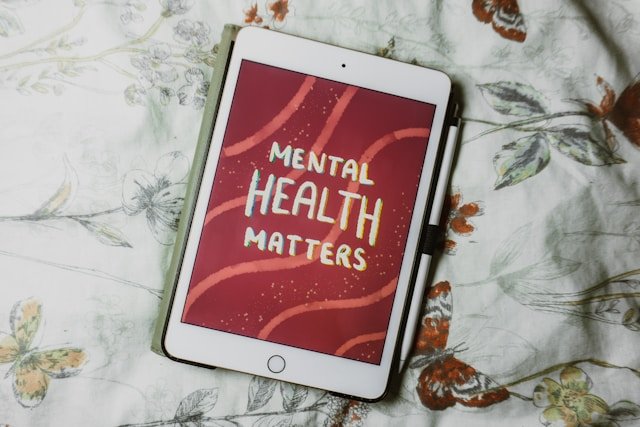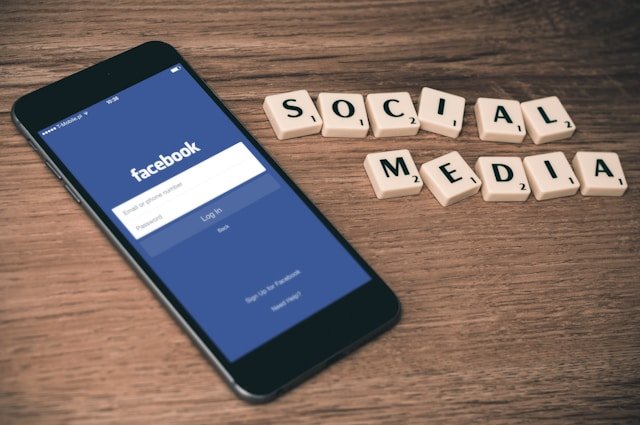
The Ultimate Guide to Digital Detox: 10 Reasons You Need to Disconnect
In our hyper-connected world, the phrase ‘digital detox’ has become a buzzword.
But what does it truly mean, and why is it so crucial for our well-being?
Why You Need a Digital Detox Now More Than Ever
Let’s be real, diving into a Digital Detox sounds more like a “should do” than a “must do,” right? But, think about it for a sec. With our noses always glued to screens, e.g., endlessly scrolling through socials or binging series, our brains are craving a break.
So, why not give this Digital Detox thing a shot? It’s all about hitting pause on digital noise to reconnect with the real world. Trust me, your mind (and those around you) will thank you for it. It’s time to give those thumbs a well-deserved rest!
The negative impact of constant connectivity
We live in an age where we’re perpetually tethered to our devices.
From the moment we wake up until we go to bed, we’re bombarded with notifications, emails, and social media updates.
This constant connection can take a toll on our mental health and productivity.
How problematic smartphone use affects our daily lives
Smartphones have become an extension of ourselves, and their overuse can be detrimental.
Do you find yourself mindlessly scrolling through social media feeds, even when you’re with friends or family?
Problematic smartphone use can lead to strained relationships, decreased productivity, and a general sense of disconnection from the present moment.
Recognizing the signs: When it may be time for a digital detox
Are you constantly checking your phone for notifications, even when there’s no alert?
Do you experience eye strain, headaches, or poor sleep due to excessive screen time?
If you answered yes to any of these signs, it might be time for a digital detox.
Understanding Technostress: The Cost of Being Always On

Ever felt like you’re attached to your phone 24/7? That’s Technostress, folks. It’s the price we pay for being always on, checking emails at midnight or doomscrolling through social media.
To beat it, try a Digital Detox. Yeah, ditch the screens for a bit. It’s like giving your brain a holiday. Trust me, taking a break from the digital world can recharge those mental batteries. So, let’s put that phone down and breathe, shall we?
Defining technostress and its effects on mental health
Technostress is the negative psychological impact of technology use on our well-being.
It can manifest as anxiety, irritability, and difficulty concentrating, among other symptoms.
In our digital age, where we’re expected to be available 24/7, technostress has become a growing concern.
Study found: The relationship between screen time and stress levels
A study by the American Psychological Association found that around 86% of adults using digital screens for more than 7 hours a day experienced higher stress levels.
The same study revealed that adults who took regular breaks from digital screens reported lower stress levels.
Disconnect to reconnect: Easing the burden of digital overload
A digital detox can help provide relief from the constant barrage of digital distractions, allowing you to reconnect with the present moment and your loved ones.
By taking a break from technology, you can reset your mind and body, reducing stress and improving your overall well-being.
Top Benefits of a Digital Detox for Your Wellbeing
Improving physical health by cutting back on digital device use
Excessive tech use can disrupt our sleep cycles, exacerbate eye strain, and contribute to a sedentary lifestyle.
A digital detox can help improve your sleep quality, reduce eye fatigue, and encourage more physical activity, all of which are essential for good physical health.
Enhancing mindfulness and presence through reduced screen time
Constantly being connected to digital screens can make it challenging to live in the present moment.
By taking a break from social media sites, email, and other digital distractions, you can cultivate a greater sense of mindfulness and presence in your daily life.
Better sleep quality and digital wellbeing from media use moderation
The blue light emitted by digital devices can disrupt our natural sleep cycles, leading to insomnia and poor sleep quality.
A digital detox, especially in the hours before bedtime, can help improve your sleep quality and overall digital wellbeing.
Taking a Break: Practical Strategies for Digital Detoxification
Ever feel like your brain’s cluttered with too many tabs, kinda like your browser? That’s when you know it’s time for a Digital Detox. Honestly, stepping away from all things ‘digital isn’t just refreshing; it’s a must-do for sanity’s sake. You could make it specific, like dodging IG and TikTok after 8 PM, or going hardcore with a full weekend off the grid. Whatever floats your boat, just giving your neurons a break from the constant buzz can make a world of difference. Trust me, your doi will thank you!
Creating a plan: Simple steps to start your digital detox
The first step in your digital detox journey is to make a plan.
Identify the areas of your life where you want to cut back on technology use, and set specific goals and timelines for yourself.
For example, you might decide to take a break from Instagram for a week or limit your email checking to certain times of the day.
Implementing tech-free zones and times to enhance social interactions
Designate specific times and places as tech-free zones, such as mealtimes or your bedroom.
This will help you reconnect with the people around you and foster more meaningful social interactions.
You might also consider leaving your phone in another room when spending time with loved ones.
The role of a social media detox in overall digital detoxification

Social media can be a significant source of digital distractions and information overload.
Taking a break from social media platforms can be an essential part of your digital detox.
You might find it helpful to temporarily deactivate your accounts or remove social media apps from your devices.
When and How to Recognize You’re Spending Too Much Time Online
Know when it’s time to hit pause? If you’re glued to your screen, diving deep into hours on social media or feeling that smartphone usage is the only way to connect with people, it’s a sign. When a study found that around 80% of smartphone owners confess to spending more time online than intended, you gotta ask – is that me? When the amount of time you use mobile devices starts messing with sleep or work, it’s a nudge to rethink the way we use our digital buddies.
Here’s a cool idea – Digital Detox. Seriously, setting a set a time each day to unplug can work wonders. Get specific about it: cut down using technology for just an hour before bed or during meals. Experts like Baumer and Przybylski point out, it’s not just how long but how we’re using technology that counts. Aim to reduce that much screen time, and instead, soak up some real-life connectedness. Because sometimes, it’s utterly crucial to hit that time to break button and give your mind a breather from digital overload.
Identifying problematic digital media use and its symptoms
Problematic digital media use can manifest in various ways, such as neglecting important tasks, losing track of time while online, and experiencing withdrawal symptoms when not using digital devices.
If you notice these symptoms in your own life, it may be a sign that you’re spending too much time online.
Fear of missing out (FOMO) vs. the reality of digital consumption
The fear of missing out (FOMO) is a common phenomenon in our digital age, where we feel compelled to constantly check our devices for updates.
However, the reality is that excessive digital consumption can lead to increased stress, decreased productivity, and a sense of disconnection from the present moment.
Assessing your digital diet: Tools and tips for cutting back
To assess your digital diet, you can use apps or browser extensions that track your screen time and app usage.
Additionally, consider implementing strategies like setting time limits for specific apps, turning off notifications, and scheduling regular digital breaks throughout the day.
Connecting the Dots: How a Digital Detox Can Improve Your Life
If you’re feeling like a schmuck glued to your screen, you’re not alone. Tons of us are realising the cray amount of time we spend on our devices isn’t all that great. That’s where a digital detox comes in, folks. It’s not about ditching tech entirely but finding that sweet spot where use and well-being balance out. Ever heard folks say how cutting down on social media use or not bringing your phone to bed can make you happier? Well, they’re onto something. A digital detox may sound like a buzzword, but it’s a solid move to break strong digital habits.
Now, don’t get it twisted. Doing a digital detox isn’t about going off the grid and living like a hermit. It’s more about being mindful of the amount of time you spend online and trying to improve your life. Like, maybe start by not having your phone be the last thing you see at night or the first thing in the morning. Move it to a different room. Small steps, people. Studies show that these tweaks can seriously improve sleep and up those mental health benefits. If you’re thinking about how does a digital detox work, it’s all about making intentional choices to use your phone and other tech in ways that don’t wreck your day.
And yo, if you need some science to back this up, another study found that [individuals experience] a boost in happiness just by cutting back. By setting limits, like a set time to start and end your day without screens, you can take small steps to manage that technology addiction. It’s all about creating a balance that allows you to enjoy your tech without letting it rule your life. Whether it’s to help you manage work-life stress or just to chill without scrolling through feeds, a digital detox can be your ticket to a healthier, happier you. Plus, research by folks like Syvertsen and Enli has shown that there’s real magic in finding a good mix of tech use and non-use – it can actually change the way you feel for the better.
So, if you’re down to challenge the status quo of your digital world, remember there are loads of reasons to do a digital detox
From reducing technostress to enhancing mindfulness: The holistic benefits of unplugging
A digital detox can have far-reaching benefits for your overall well-being.
By unplugging from digital distractions, you can reduce technostress, improve your sleep quality, cultivate greater mindfulness, and reconnect with the present moment.
This holistic approach to well-being can positively impact your physical, mental, and emotional health.
Success stories: How taking a break from digital devices can transform your wellbeing
Many individuals have reported positive changes in their lives after implementing a digital detox.
From improved focus and productivity to better relationships and a greater sense of calm, the benefits of taking a break from digital devices are numerous.
Hear from real people who have experienced the transformative power of a digital detox.
Continuing the journey: Maintaining digital health beyond the detox
A digital detox is not a one-time event, but rather a journey towards a healthier relationship with technology.
After completing your initial detox, consider implementing ongoing strategies to maintain your digital health, such as setting boundaries around device use, prioritizing face-to-face interactions, and regularly engaging in digital-free activities.
FAQs
What is a digital detox?
A digital detox is a conscious decision to take a break from digital devices and technology for a specific period of time.
This can involve abstaining from activities like checking social media sites, responding to emails, or using smartphones and other digital screens.
How do I detox myself digitally?
To detox digitally, start by identifying the areas of your life where you want to reduce technology use.
Then, make a plan to limit or eliminate your use of certain digital devices or platforms.
You can also implement strategies like setting tech-free times and zones, removing distracting apps, and finding alternative activities to replace your digital habits.
How long does a digital detox take?
The duration of a digital detox can vary from person to person based on individual needs and goals.
Some people may choose to take a short break for a day or a weekend, while others may opt for a more extensive detox lasting a week or even a month.
The key is to find a timeframe that works for you and allows you to experience the benefits of unplugging.
Is a digital detox worth it?
Absolutely! A digital detox can be a transformative experience that positively impacts various aspects of your life.
By taking a break from digital distractions, you can reduce stress, improve focus, enhance sleep quality, and cultivate more meaningful connections with others.
Numerous studies and personal accounts have highlighted the mental and physical health benefits of a digital detox, making it a worthwhile investment in your overall well-being.




